Services


Trademark Search
and Clearance
Search Onlineand Clearance

Leading IP Firm
Our ratings
The conduct of a special military operation (abbreviated as "SMO" or "SVO") has formed a demand in Russia for products with the symbols of the SMO, in particular, for consumer goods with the letters "Z" and "V" placed on them, as well as other designations that are associated with the Armed Forces of the Russian Federation and the tasks of the SMO. As a rule, such goods are purchased by the patriotic part of society to express their civic position, as support for the Armed Forces of the Russian Federation, etc.
Given the social and political relevance of this agenda, there is also a trend in domestic business to register trademarks with the symbols of the special military operation. Manufacturers of goods (works, services) strive to demonstrate to the target audience that they share their values, this causes a high emotional response from consumers and influences their decision when choosing a product from among similar ones.
In this article, we will talk about the problems that applicants face when registering the relevant designations as trademarks and share recommendations on what to consider when filing an application for registration.
The Civil Code of the Russian Federation [1] establishes several grounds that are prohibited from registering designations as trademarks. In this regard, the registering authority, when considering an application for registration of a trademark, checks the claimed designation for the impossibility of its registration on each ground that is established as a prohibition.
For example, as a general rule, the law prohibits the registration as trademarks of designations that relate to objects that include official symbols, names and distinctive signs (flags, coats of arms, orders, banknotes, etc.), or are confusingly similar to them (Clause 2 of Article 1483, Article 1231.1 of the Civil Code of the Russian Federation).
At the same time, the letters "Z" and "V" do not have the legal status of official symbols, however, in most cases, the registering authority (Rospatent) refuses to register such designations as trademarks, guided, as a rule, by the grounds specified in subpara. 2 of Clause 3 of Article 1483 of the Civil Code of the Russian Federation – contradiction of public interests. A similar situation arises when registering other designations that cause or may cause associations with the NWO in the consumer.
Thus, according to paragraph 2 of Clause 3 of Article 1483 of the Civil Code of the Russian Federation, the law prohibits the registration as trademarks of designations that represent or contain elements that are contrary to public interests, the principles of humanity and morality.
The list of situations when the designation is recognized as contrary to public interests, the principles of humanity and morality is not established by law. This is due to the fact that in each specific case the designation is evaluated individually based on its semantic meaning and taking into account the actual circumstances, the presence and meaning of which is established independently for each designation.
Examples of cases when a designation is recognized as contrary to these interests and principles are given in the Rules for the Registration of Trademarks [2]. In particular, they include situations where national and (or) state symbols (coats of arms, flags, emblems), anti-state slogans, etc. are unethically used in the designation.
In addition, designations that are contrary to the public interest, the principles of humanity and morality may include designations, the use of which in relation to certain goods and services may be ambiguously perceived by society and may cause negative associations in relation to such goods and services.
Let's consider specific examples of what factual circumstances influenced the refusal of Rospatent to register designations containing the symbols of the SMO.
1. Rospatent refused to register the designation as a trademark of the applicant
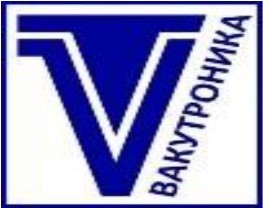
Refusal to register on the basis of subparagraph 2 of Clause 3 of Article 1483 of the Civil Code of the Russian Federation was motivated by the fact that at present on the territory of Russia, the graphically highlighted letters "V" and "Z" evoke strong associations with the Armed Forces of the Russian Federation, since they are used on Russian military equipment, uniforms, as well as by civilians as designations indicating support for the Armed Forces.
The Board of the Chamber for Patent Disputes (PPC) upheld [3] the decision of Rospatent, noting that the registration of distinctive signs of the special military operation as trademarks does not comply with the legislative acts of the Russian Federation and, as a result, is contrary to the public interest.
Registration of such a designation as a means of marking goods in order to distinguish them on the market among similar products of other manufacturers can be considered as a violation of the ways of using the letter "V" developed in the moral consciousness of society, its unethical use, which leads to a violation of the principles of morality.
In addition, the meanings of the letters "Z" and "V" known from the media as slogans "For Victory", "Strength to the Truth", "The Task Will Be Completed" refer to the tasks of the special military operation, their use in the commercial sphere (as trademarks) does not comply with the principles of humanity.
It is important to note that in this case, Rospatent rejected the applicant's argument that the figurative element is perceived exclusively as a combination of the letters "V" and "T", since the applicant did not prove that Russian consumers perceive the disputed element in this capacity.
The examination of the office came to the conclusion that the figurative component of the designation is perceived as a single graphic symbol that forms the letter "V" of the Latin alphabet, since the contours of the curved lines of white and blue colors repeat the contours of this letter.
2. Rospatent refused to register the designation as a trademark of the applicant
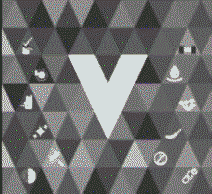
As in the previous example, the reason for the refusal was the conclusion of Rospatent that the symbol "V" included in the designation is currently used as a symbol of the Armed Forces of the Russian Federation, since it is associated by a wide range of persons with the tasks of the special military operation, as a result of which the registration of the designation as a trademark is contrary to the public interest.
It is noteworthy that in this case, Rospatent pointed to the central location of the Latin letter "V" in the designation and its execution in bold, which is perceived as the main dominant element of the claimed designation. This circumstance prevented the applicant from registering the designation as a trademark with the letter "V" as an unprotected element.
The Chamber of Patent Disputes supported the decision of the Rospatent, noting that the associative perception of the "V" mark is stable and does not depend on the purpose or belonging of the goods to a particular generic category, and the "V" mark itself has actually passed into the public domain. This status implies the free use of the disputed mark by a wide range of persons, including those engaged in entrepreneurial activities.
3. Rospatent refused to register the designation of the applicant as a trademark

The reason for the refusal was also the conclusion that the associative perception of the letters "Z" and "V" by Russian consumers is associated with a special military operation, and such a perception is obvious.
Among other things, in this case, it is interesting to note how the Chamber of Patent Disputes, which also supported [5] the decision of Rospatent to refuse to register the designation, evaluated the evidence supporting the conclusion about the said associative connection.
The Chamber of Patent Disputes rejected this argument and, referring to Article 49 of the Law on Mass Media [6], pointed out that the disputed sources - sites - are registered as mass media, in respect of which there is a presumption of the reliability of the information disseminated.
Thus, in this case, it was up to the applicant to prove the unreliability of the sources in support of his argument, since, as a general rule, the refutation of the presumption rests with the person who challenges it.
4. In this example, Rospatent refused to register a trademark that did not contain the letters "Z" and "V", but included the word element "WAGNER", "WAGNER"
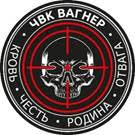
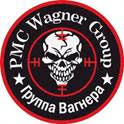
The registration authority noted that the controversial designation as a whole can be associated with the private military company Wagner. On this basis, the examination qualified the designation as contrary to the foundations of public order and capable of causing public outrage.
5. In conclusion, let us give an example in which Rospatent also refused to register the applicant as a trademark of the designation
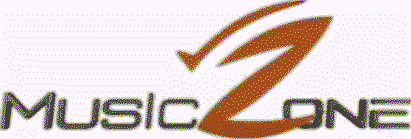
As in previous situations, the refusal was motivated by the fact that, according to the results of the examination of the department, the element that is part of the claimed designation (the letter "Z") is currently used as a symbol of the Armed Forces of the Russian Federation, which is contrary to the public interest.
However, this time the Chamber did not support [7] Rospatent and decided to register the trademark. The decision was influenced by the following factors:
Thus, the Chamber, taking into account the specific factual circumstances, came to the conclusion that the perception of the claimed designation requires reasoning and speculation, is not directly perceived in the context indicated by the examination related to the signs of the special military operation, and does not contradict the public interest.
As shown in the examples above, the main factual circumstance that affects the refusal to register a designation with the symbols of the special military operation is the possibility of consumers perceiving the disputed element and, accordingly, the disputed designation itself, as related to the special military operation (associated with its tasks).
Thus, in the first example, the outcome of the case could have been different if the applicant had provided convincing evidence that, as a result of the intensive use of the designation, consumers perceive the disputed element not as a single graphic symbol forming the letter "V", but as a combination of the letters "V" and "T", derived from the word element VACUTRONICA and associated with it.
In addition, it is important to pay attention to the visualization of the disputed element in the designation, in particular, to its location, graphic highlighting, stylization, etc.
The Rospatent also takes into account the purpose for which the use of the designation that is associated with the SMO is supposed to be used - the use of such a designation for commercial purposes is in itself contrary to the public interest, regardless of the type of goods (works, services) in respect of which legal protection of the trademark is sought.
In conclusion, we would like to emphasize once again the key idea: the use of SMO symbols (the letters "V", "Z", etc.) in the designation does not in itself prevent its registration as a trademark. The association of the designation with the SMO is an obstacle, since the commercialization of such designations by other persons in their activities is unacceptable.
Sources: